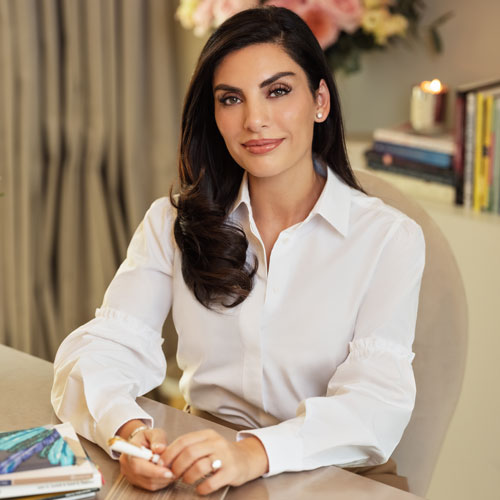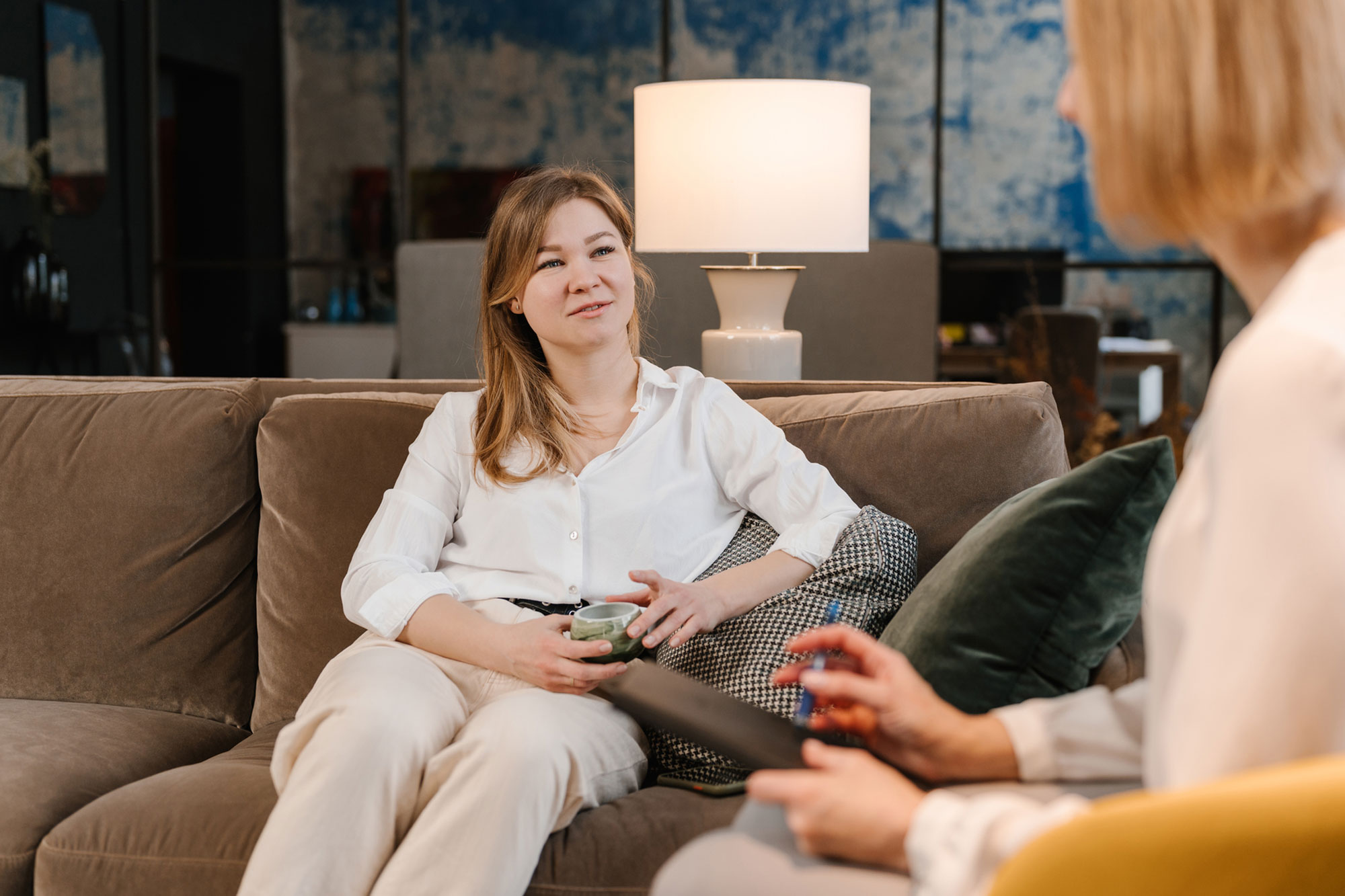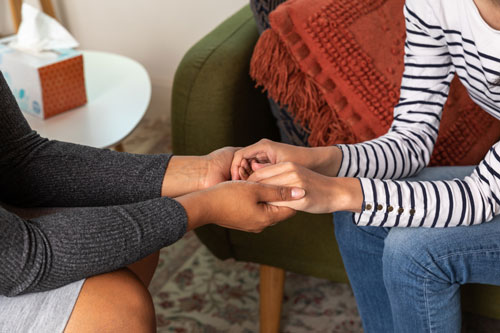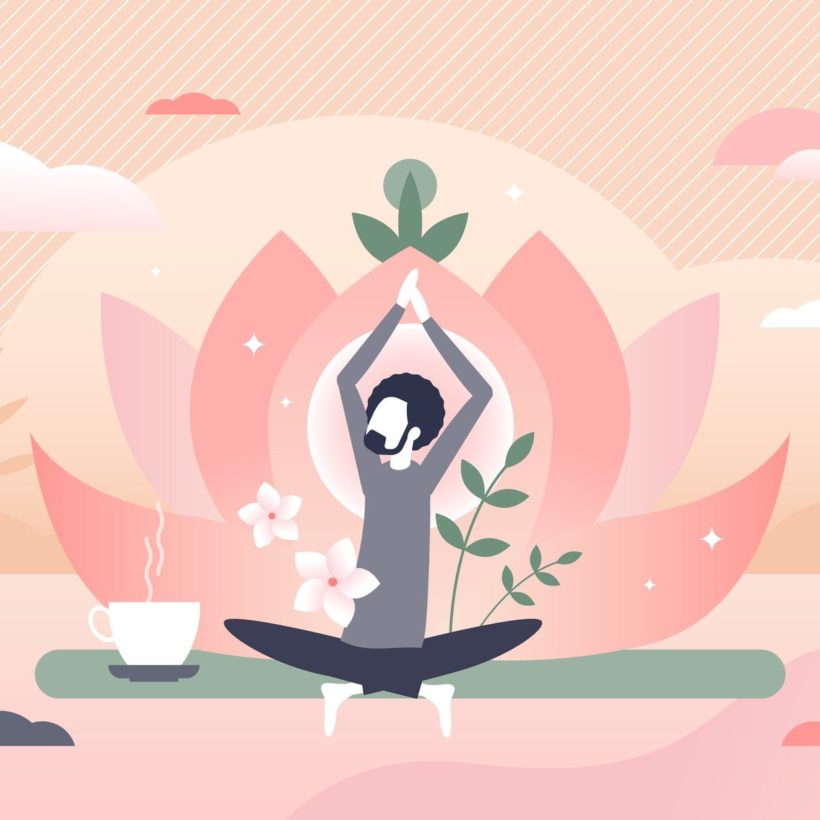It seems like you can’t scroll on social media without coming across content about reconnecting with or “reparenting” your inner child. After all, it’s the subject of countless #therapytok videos, and even served as a topic of conversation on an episode of The Bachelorette. Dr. Saliha Afridi, a Dubai-based licensed clinical psychologist, knows all about this. Not only is the mother of four an accomplished and respected clinician, but the TEDx Talk speaker is also the founder of The LightHouse Arabia, an outpatient facility that boasts a staff of over 30 psychologists, psychiatrists, occupational, and speech & language therapists to provide integrated, accessible care. She knows firsthand how important prioritizing mental health is — it’s what drives her to do the work she does every day.
We spoke with Dr. Afridi about growing through trauma, healing your inner child, and the simple action we can all take to welcome calm into our everyday lives.
Reconnecting with your inner child has been at the center of many mental health conversations. Can you speak to the importance of doing so and what “reparenting your inner child” actually looks like?
I want to first say that we all have many “parts” — the inner adult, the inner child, the inner bully, the inner critic, the inner sage, etc. The inner child is a part of all of us that has existed long before we developed conscious awareness. It has been present throughout our childhood and those multiple points in our childhood represent the inner child at various ages.
Most people think of inner child work as healing the parts of us that are wounded and that is a big part of it, but that isn’t all of it. It is also about giving that “child” inside of us the sense of safety so that it can be free, joyful, open, excited, curious, and all the ways we were before the world told us that we had to be something different. Depending on your personality and your childhood experiences you will have an inner child that is going to require different levels of healing. The inner child in the adult self can take on many different forms, and it isn’t just “wounded” but also “magical” and “joyful” and “carefree.”
No one can see their own back and we all need a mirror. Every great player has a coach. That’s what a role a good therapist can play in a person’s life.
The reality is that we all had a childhood in which the world was big and we were small, and we all experienced things that felt too big for us to process, and many of us didn’t have that adult to help us make sense of things or metabolize those big emotions and even for those who had the most loving parents they could not possibly be there for every single experience — so those moments and experiences became stuck inside of us as “traumas” and those traumas resulted in us building defenses and filters through which we started to view life and relationships. It disconnected us from our joyful, connected, curious, excited, innocent, child-like parts of us.
The goal of this type of work is to heal those wounds, to create safety in the body and the heart, to change the narrative, and reconnect with our child-like parts again. It’s to liberate ourselves from the wounds/narratives that have dictated our life so that we can live more connected and more joyfully.
How have you personally reconnected with your own inner child? What tips do you recommend for those looking to get started?
Yes, I have and I do. It is an ongoing journey. My tip is to cultivate a healthy adult. The more you trust the healthy adult part of yourself, the more the inner child will feel safe enough to reveal its pain to you. The healthy adult can be cultivated in the smallest and biggest ways — for example:
- Showing up for yourself when you said you would for example if you say you are going to work out at 8:00 a.m., then show up at 8:00 a.m. and not cancel at the last minute.
- Stand up for yourself kindly and firmly instead of letting people get away with saying and doing things that feel hurtful to you.
- Be deliberate and intentional about how you spend your days.
- Consider your company (online and in person) who you are spending your time with because that will be a strong determinant of who you will become.
- Ask yourself what do you want to do instead of absolving the responsibility of your decision making on the people around you who by the way, will gladly make the decisions for you and call you “easy going” but the truth is that taking decisions and making choices is hard because then you only have yourself to hold accountable for the outcome.
What triggers an inner child? How do you know if your inner child is hurt?
Triggers vary for people based on their experiences. What triggers one person will not trigger another. Typically a trigger will point to the part of your story and experience that needs processing, healing, or integration. It can result in a fight/flight/freeze/fawn response in people and so most people don’t stay with the “pain” long enough to heal it. But if you can stay with the pain it will lead you to the part that needs healing.
The trigger will lead you to the treasure. Stay with that pain point long enough for it to tell you its whole story and there you will find an exiled part of yourself that you got disconnected to in your childhood. This is the work. Oftentimes it’s hard to stay with that pain alone, or make sense of what to do when you are “with it” which is where therapy can be helpful.
How do you practice prioritizing your needs during particularly stressful moments? Is there a mantra you live by that helps you get through it?
At different times in my life I would have answered this question differently. Now, for me caring for my well-being is a way of life. It is with discipline and a daily devoted practice that I show up for myself. In good times and in difficult times the practices remain consistent. It isn’t “stress management” or “time management” — it’s just a way of being with myself for myself that is considerate and caring. The mantra I live by is “Remember what you are.”
Beauty lovers often look at completing their meditative, multi-step skincare routines as a form of self-care. What is something you do every day that brings you joy and peace?
For me, and for many others, doing these multi-step skincare routines are not just about skin, it’s about a way of being with oneself that considers you at the start of your day and at the end of your day. It’s about taking your time, and not rushing through self-care. It’s about looking at the mirror lovingly and gratefully. It’s about spending money on yourself and saying I matter and I am worthy of this care.
Is there a simple action we can all take to welcome more calm into our lives?
Breathe. Consciously and with intention, breathe for at least 10 minutes a day. Inhale for four counts and exhale for four counts. This is the fastest way to create safety for the body, and safety = calm.
What would you say to someone who believes they’re not the right candidate for therapy?
I would want to understand why they believe this to be the case and what they think happens in therapy. If they think therapy is there to fix people? Or if therapy is only talking and you can do that with your friends? Or if you think it is the one-stop cure for all your issues — then those beliefs need to be addressed; because therapy doesn’t fix people, it isn’t just talking, and it is not the only thing, but one of many things you can do to address your pain points.
Therapy essentially highlights your thoughts/relational patterns and raises your awareness, making you conscious so that you can exercise choice when issues show up instead of operating unconsciously from a wounded place. And conscious choice allows people to make healthier decisions, which in turn changes their life. And while I am a big fan of therapy, and engage in my own process with my therapist, I don’t believe it is the only thing people can do to heal or become conscious, but it is definitely an important way people can engage with their personal narrative. It is an important tool in the tool kit, but you need many tools to do the work holistically. Bodywork, breathwork, artistic expression, alternative therapies, energy work, and spiritual work are all part of the ways people can heal, but yes, I believe therapy plays a big role in helping people integrate all these different experiences into a personal narrative that feels cohesive.
And I would also tell those people: No one can see their own back and we all need a mirror. Every great player has a coach. That’s what a role a good therapist can play in a person’s life.
When did you know you wanted to become a psychologist?
I didn’t know I wanted to become a psychologist until I graduated from my psychology doctoral program! I wasn’t “becoming” a psychologist, but instead I was studying something that I had enough curiosity and interest for and it was intriguing and interesting to me and it led me to becoming a psychologist.
Interestingly enough in my undergraduate program I took a couple psychology courses and did not enjoy them at all and so I didn’t take any more and I gravitated towards courses in sociology and anthropology because I was really interested in people and their stories and intro psychology courses are really not about that … so I did my undergrad major in Cultural Anthropology. It wasn’t until a few years after I graduated that I revisited psychology and at that point I guess I was ready for it.
Reflecting back, I am so glad I didn’t do my undergraduate degree in psychology. Anthropology shaped my curiosity about people; it trained me to look at the system, the community, the culture, and the space that shapes people. I tell my kids the same: Follow the interest, and go where it takes you. Don’t think about “becoming” something. Just study/do what makes you come to life and eventually you become something in that field. Follow the “flow state” (“a state in which people are so involved in an activity that nothing else seems to matter; the experience is so enjoyable that people will continue to do it even at great cost, for the sheer sake of doing it,” according to Mihaly Csikszentmihalyi) … or as Joseph Campbell says, “Follow your bliss!”
How has motherhood transformed the way you approach your work?
My work is my calling. It is my life’s purpose and path. And so there was no way that I was not going to pursue this path because it would have felt like self-betrayal. My “work” is serving the community and contributing to raising the awareness and overall happiness of my community — and my children are a part of that community so in many ways my children have deepened my commitment to my work.
I have also learned that balancing an ongoing task which has been difficult for me because I am an intense, all or nothing type of person, so becoming a mother and having children shifted my center of gravity. Lastly, they triggered my inner journey. And since their arrival I have been confronted with my fears, my anxieties, my lack of trust, my need for control, and all the things I thought I was done with — my kids brought forth in me. And what they brought forth I could heal and transform. So my children transformed me. And since I am the vehicle and the vessel through which my work is done, they transformed the way I showed up in the therapy room and in every other part of my life, including my “work.”
You’ve built a community on social media and have given a TEDX Talk. What’s next on your career bucket list?
I have also built and celebrated the 12 year anniversary of The LightHouse Arabia and my most important achievement has been shaping the mental health scene in the UAE and the region through countless efforts of me and my team including thousands of hours of free public awareness in schools and companies — the social media and the TEDX Talk came from the aftermath of the work I did on the ground in the UAE community.
My “career” has been shaped by what my heart has called me to do; I didn’t plan any of this, but I followed my heart’s calling and it led me here. At this point in my life, I trust my heart’s calling more than ever. I trust it knows the way. So I will go wherever it takes me next and be whatever it asks of me. For now, this is where it says I should be and I am sure that this is where I am supposed to be.








